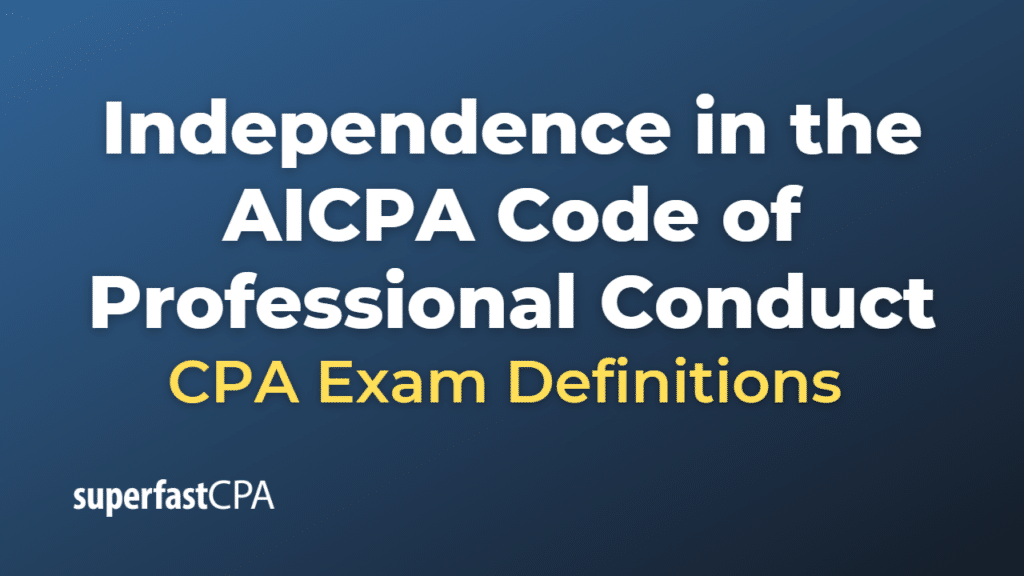Independence in the AICPA Code of Professional Conduct
Independence is a fundamental principle in the AICPA (American Institute of Certified Public Accountants) Code of Professional Conduct, which requires auditors and other accounting professionals to maintain an unbiased and impartial attitude when providing assurance services, such as audits, reviews, and other attestation engagements.
The concept of independence is essential for ensuring the credibility and reliability of the financial information provided by accountants and auditors, as it helps build trust among investors, creditors, regulators, and other users of financial statements.
The AICPA Code of Professional Conduct sets forth specific rules and guidelines to help accounting professionals maintain independence in both fact and appearance:
- Independence in fact: This refers to the auditor’s mental state and actual ability to remain objective and impartial when performing their professional responsibilities. It involves making unbiased judgments, avoiding conflicts of interest, and not being influenced by any external pressures or factors that could compromise their professional judgment.
- Independence in appearance: This refers to how the auditor’s independence is perceived by others, including clients, users of financial information, and the public. Maintaining independence in appearance requires avoiding situations, relationships, or circumstances that might create a reasonable perception of compromised objectivity or impartiality.
The AICPA Code outlines various threats to independence, such as financial interests, family or personal relationships, employment relationships, and the provision of non-audit services to audit clients. To address these threats, the Code provides a conceptual framework approach, which requires accountants to identify, evaluate, and apply safeguards to eliminate or mitigate potential independence impairments.
Additionally, the Code specifies certain prohibitions and restrictions to maintain independence, such as restrictions on financial interests in audit clients, limitations on the provision of non-audit services to audit clients, and requirements for partner rotation on audit engagements.
It is essential for accounting professionals to uphold the principle of independence, as it not only forms the basis of public trust in the accounting profession but also contributes to the integrity and stability of the financial reporting system.













